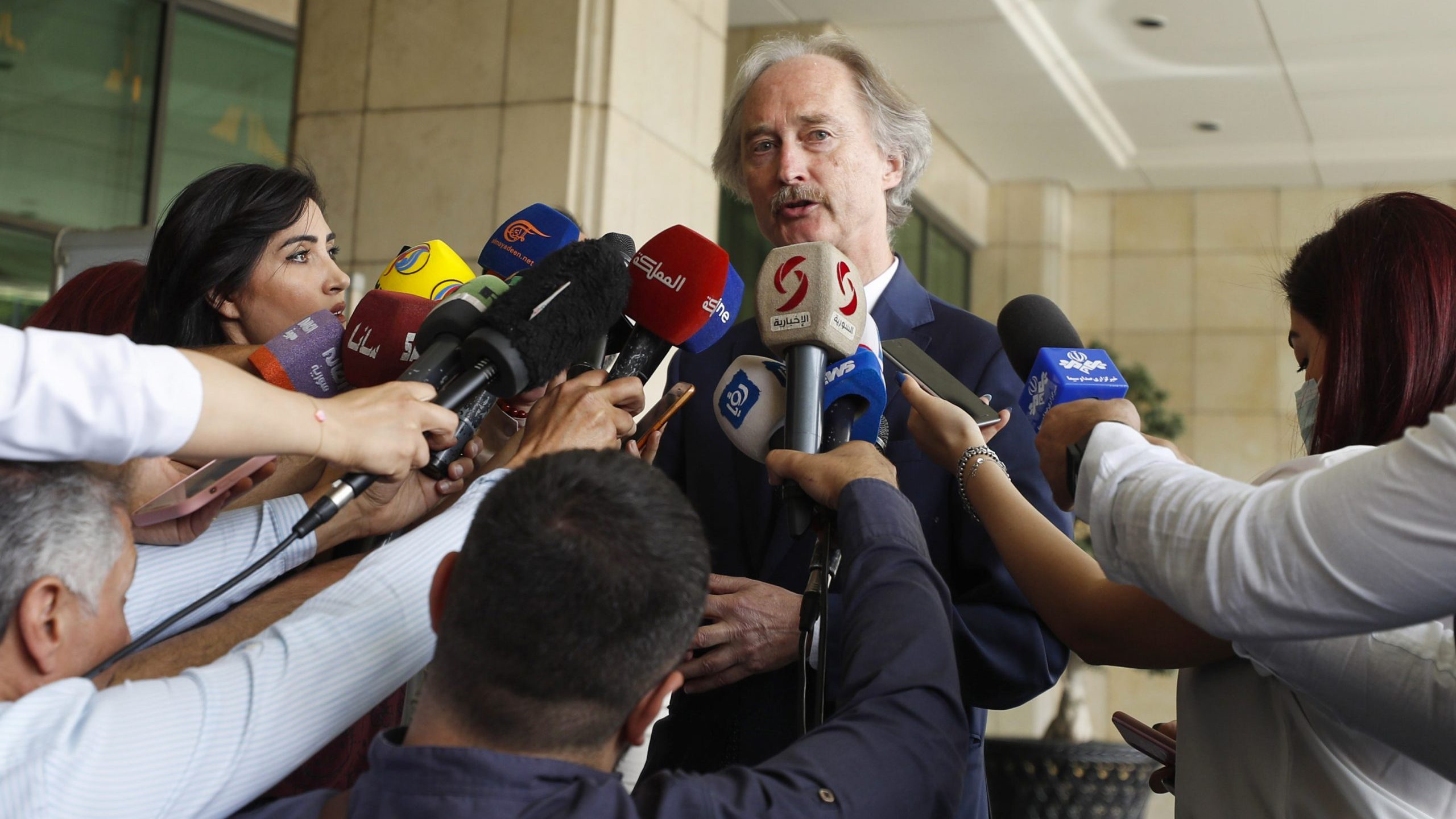Geir Pedersen, UN Special Envoy for Syria, is very pessimistic. He believes that there is a big chance that things could collapse again.
“There are absolutely no guarantees if we don’t move towards a nationwide cease-fire and get the political process back on track, that things cannot collapse again,” said Geir Pedersen, UN Special Envoy for Syria, in an exclusive interview with Al-Monitor on the sidelines of the UN General Assembly.
“If there is no understanding between the key international actors, yes, there are things I could do with the step-for-step approach,” said Pedersen. “But on the key issues — the country’s division, the economic collapse and the fight against UN-listed terror groups, which is still very much there — it would be extremely difficult. It would probably be impossible if you don’t have that combination.”
The political process has reached an impasse after Russia and the Assad regime has decided to withdraw from the Constitutional Committee talks in Geneva.
They both accused the Swiss government of being biased.
Read Also: SOC’s President Meets Qatari Foreign Minister on Sidelines of UN General
Pedersen referred to the UN-mediated committee to draft a new constitution as a “disappointment” because “the committee has not delivered what we expected of it.”
Pedersen told Al-Monitor, “I said that I would continue to work on the constitutional committee, but frankly, the committee has not delivered what we expected of it, what it should have delivered. It has been a disappointment. And we know, as you may know, we have a problem with the venue. The Russians and the Syrian government don’t want to come to Geneva.”
In a sign of the times, Pedersen met this week with the foreign ministers of the so-called Astana Group — Russia, Iran and Turkey — with no comparable meeting with Western ministers.
Pedersen said he told the Astana ministers that “none of you can dictate the outcome of the conflict.”
And then, my argument to [the Astana trio], as it is with the Americans and the Europeans, is that none of you can dictate the outcome of the conflict. The same, of course, is understood by the Americans and the Europeans. There needs to be a compromise that, of course, involves the Syrian parties. But without some kind of cooperation between all of these actors, we are not going to solve the underlying [issues], the political challenges that are there and the division of the country, or start to get the economy up and running again. We need this kind of operation.
But this move can be easily seen as a support for the Astana process vs the UN-backed Geneva process.


